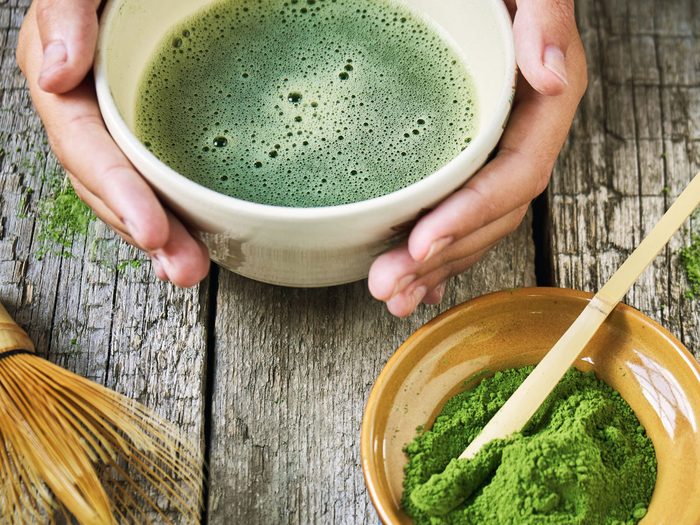
Certian teas can help with weight loss
Pouring hot water over tea leaves and allowing it to steep for a few minutes, depending on the variety, can brew some health benefits. We all know tea is a beverage that can make us feel better when we’re sick and promote feelings of relaxation when we’re under stress. But, do those benefits include potential weight loss? (If that’s your goal.)
All tea comes from the Camellia sinensis plant, but the leaves are processed differently, which leads to the assortment of teas, including its colours and flavours, such as green tea, oolong, black, and white.
So, do some teas have potential for weight loss when accompanied by a reduced-calorie diet and exercise? Find out down below and start sipping on its benefits.
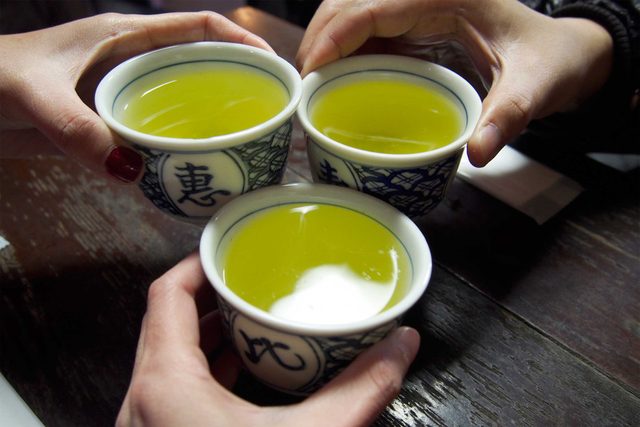
Green tea: Contains compounds that may help weight loss
Green tea is thought to help with weight loss due to its high levels of epigallocatechin gallate (EGCG), a compound tied to several health benefits. Green tea has naturally low levels of caffeine, but the combination of caffeine and EGCG may have a “small positive effect” when it comes to losing or maintaining weight, according to a 2009 meta-analysis of 11 studies in the International Journal of Obesity. Its lower caffeine levels, compared with black tea, make it easier to sip any time of day without having an effect on your sleep later that night. Impressed? Weight loss isn’t the only benefit of green tea—check out these other health benefits of green tea.
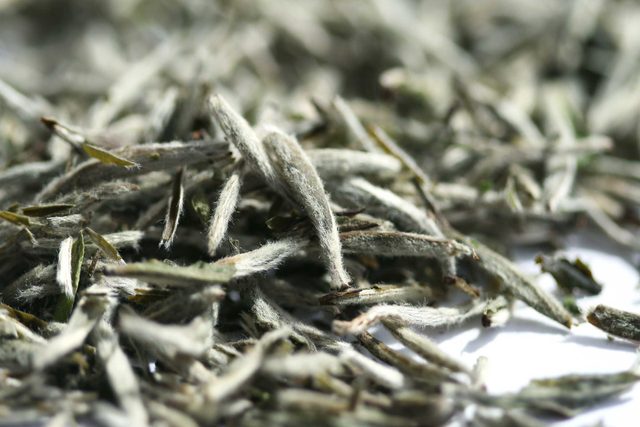
White tea: May boost metabolism
When you think of weight loss, you probably think of green tea, but white tea may also be effective when it comes to helping you lose weight. In a 2009 study in laboratory-grown fat cells published in the journal Nutrition & Metabolism, white tea extract was found to help in the breakdown of fat and inhibit the formation of new fat cells. The findings don’t mean that white tea will have the same effect on people who drink it. However, the researchers say it’s the tea’s high EGCG content, the compound also found in green tea, that induces this breakdown in laboratory-grown cells.
Bonus: White tea may help rev up your metabolism. A 2010 study published in the International Journal of Obesity notes that any kind of tea (or capsaicin, which is found in peppers) can boost metabolism by four to five percent. While more research is needed on white tea in particular, the authors note that it has more EGCG and caffeine than green tea. (Here are the weight-loss facts that people always get wrong.)
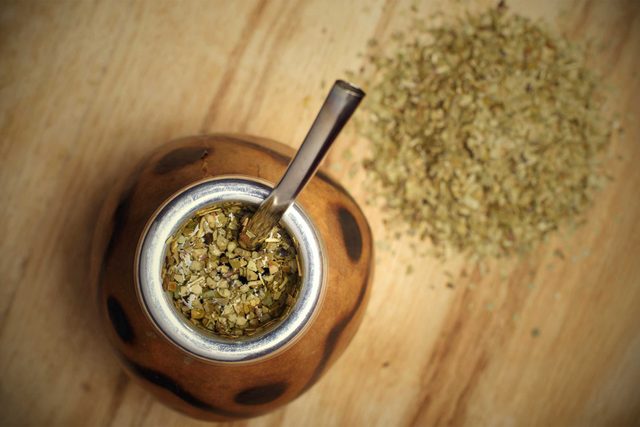
Yerba mate tea: May help lower blood sugar
Made from leaves and twigs of the yerba mate plant, this traditional South American tea contains stimulating chemicals like caffeine, theophylline, and theobromine. In a 12-week study, published in the journal BMC Complementary and Alternative Medicine in 2015, yerba mate helped obese participants lose weight and belly fat. Participants given yerba mate supplements for 12 weeks lost an average of 1.5 pounds and reduced their waist-to-hip ratio by two percent. In comparison, those given a placebo gained an average of 6.2 pounds and increased their waist-to-hip ratio by one percent over the same period.
Yerba mate is considered a substitute for coffee—without the bitterness—so try it in place of your morning Joe. (Trying to cut back on the caffeine? Try this caffeine-free bevvy.)
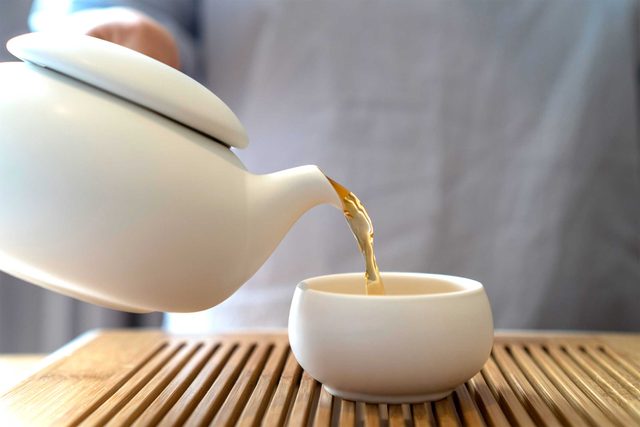
Oolong tea: May help metabolize fats
Oolong tea leaves are partially oxidized (black teas, for instance, are fully oxidized), lending a smooth, but bold taste to the brew. Happily, they may also help boost your body’s ability to metabolize fats, reports a 2009 study published in the Chinese Journal of Integrative Medicine. When obese and overweight participants consumed oolong for six weeks about two-thirds lost more than 2.2 pounds and 12 percent belly fat. Bonus: They ended the study with healthier cholesterol and triglyceride scores. (Psst: These are the best workouts to burn calories.)
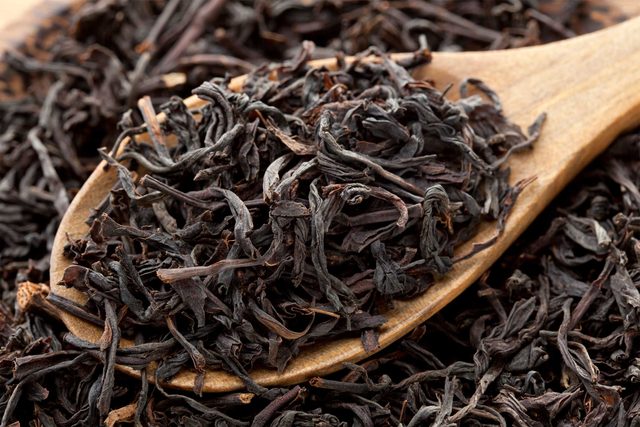
Black tea: May block fat absorption
Black tea not only helps weight loss, but it may also be protective against type 2 diabetes. A 2017 animal study published in the European Journal of Nutrition found black tea can help prevent weight gain when eating a high-fat diet, possibly because it blocks fat absorption during digestion. The research is preliminary and it hasn’t been conducted on humans, but black tea contains plant compounds called polyphenols—namely theaflavins and thearubigans—that may be responsible for the fat-blocking benefits.
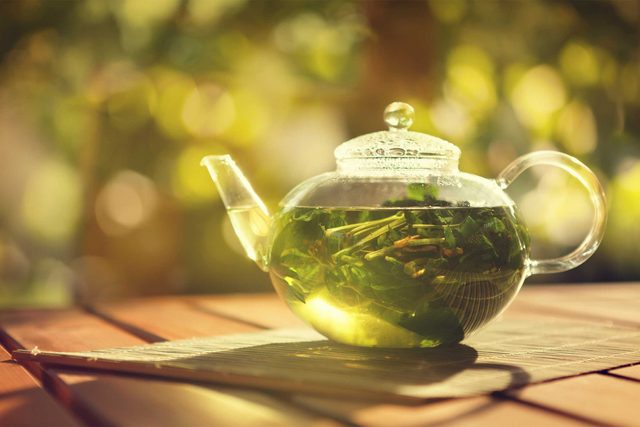
Peppermint tea: Scent may curb hunger
The next time you drink this tea, give it a good, long sniff. A 2008 study published in the journal Appetite found when participants inhaled the fresh, minty scent every two hours for five days, they ate fewer calories and less sugar. It appears the scent is a strong—and tasty—to curb cravings. Luckily, unlike peppermint candies, peppermint tea is a calorie-free indulgence.
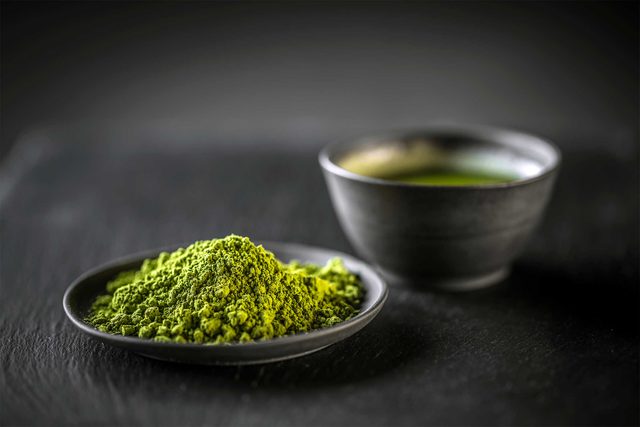
Matcha tea: Packed with EGCG
Made from pulverized green tea leaves, you stir matcha into hot water. This means you consume the whole tea leaf. For that reason, you get a bigger dose of EGCG. A study from the University of Colorado at Colorado Springs compared green tea and matcha tea and found that drinking matcha delivered 137 times the metabolism-revving EGCG compared to traditional green tea. One tip: if you find matcha to be too bitter on its own, foam it into milk and stir with honey for a delicious matcha latte.
(Psst: This matcha smoothie bowl is the perfect way to start the day.)
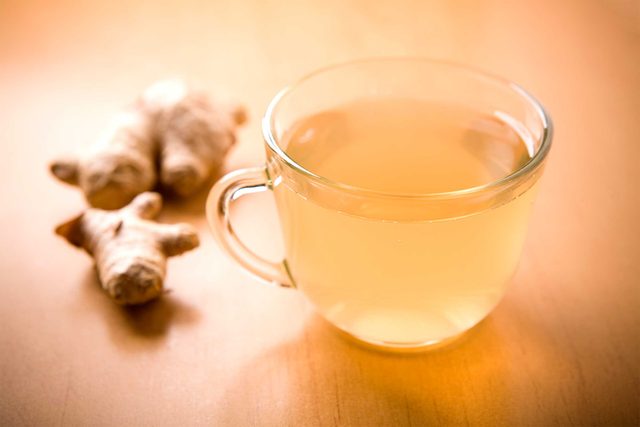
Ginger tea: May reduce hunger and increase satiety
When you’re in the mood for a spicy drink, make ginger your go-to tea for losing weight. Eating the zesty rhizome on its own has been found to reduce inflammation and improve blood pressure. In 2017, the Annals of the New York Academy of Sciences, published the findings of 60 studies, performed on cell cultures, lab animals and humans, and concluded that ginger and its major constituents exert beneficial effects against obesity, type 2 diabetes, [cardiovascular diseases] and related disorders.
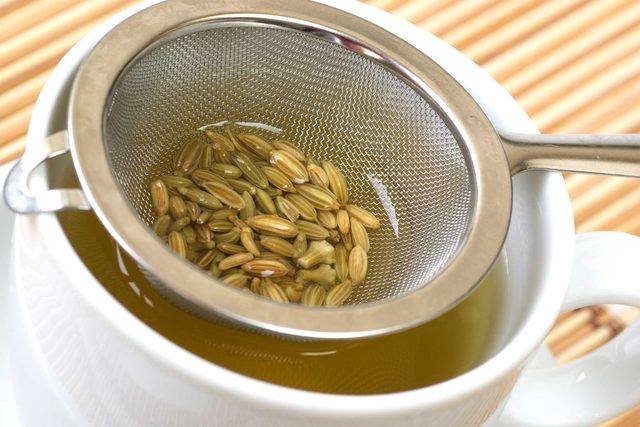
Fennel tea: May help you slim down while you sleep
Some foods, like fennel, increase levels of melatonin in your body, a hormone that helps you drift off at night—and according to a 2018 study from the University of Granada—may help buffer weight gain and lessen heart disease risk in healthy people. Truth: you might not find fennel tea to be palatable on its own, particularly if you’re not a licorice fan. (Still can’t sleep? These other natural sleep remedies are worth a try.)
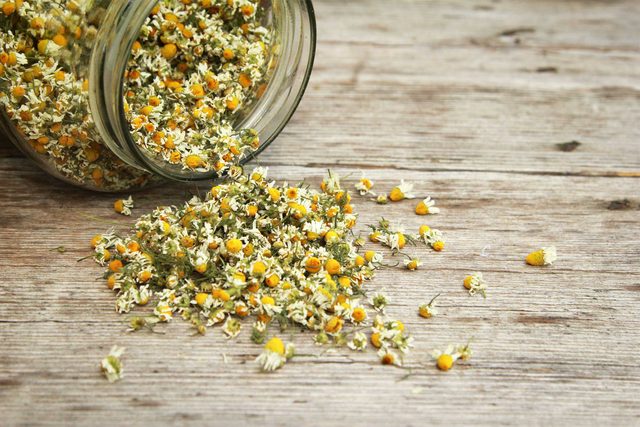
Chamomile tea: Quells anxiety
There are a few reasons to have a cup of this tea before bed. For one, chamomile can make for an especially soothing part of your wind-down time, which cues your brain and body that you’re ready for sleep. Two, the herbal is caffeine-free, so it won’t keep you up. And three, chamomile has particular medicinal qualities from flavonoids called apigenin that calm nervous system activity to help you drift off without worry, a 2016 study in the journal Phytomedicine suggests. In the study, researchers found the long-term use of chamomile reduced moderate-to-severe symptoms of generalized anxiety disorder. Caution: it still remains unclear if and how chamomile works to reduce anxiety.
Considering that a full night’s sleep promotes a healthy weight, this is one good-for-your health habit you should get behind.
Next, check out these top tricks from therapists on how to deal with anxiety.
